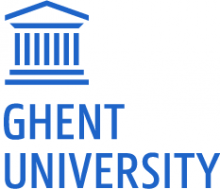Artificial Intelligence Laboratory
The Artificial Intelligence Laboratory (AI Lab) studies both the modeling of natural phenomena, and the development of algorithms for complex problem solving inspired by these phenomena. The AI Lab has experience with a wide range of learning techniques such as: Reinforcement Learning, Swarm Intelligence, Genetic Algorithms, Neural Networks, Support Vector Machines, Bayesian Networks, Genetic algorithms etc. The research at the AI Lab is structured around two major research tracks:
1) Machine learning techniques for data mining applications
2) Evolution and Learning in single as well as multi-agent systems
For the latter track the AI Lab relies mainly on a learning paradigm called Reinforcement Learning (RL). RL describes a family of techniques for solving sequential decision problems in possibly stochastic environments, using trial-and error interactions with the environment. It can be seen as a model-free version of dynamic programming or as direct adaptive optimal control. While essentially model-free, the performance of RL techniques can be further improved by combining them with various forms of expert knowledge that may be available, such as heuristics, environment models, human demonstration or others. Reinforcement learning already has been successfully applied in a wide range of settings, including robot and machine control, network routing, scheduling, resource allocation and many others.
Software Languages Lab
The Software Languages Lab (SOFT) of the VUB, is headed by Theo D’Hondt, Viviane Jonckers, Wolfgang De Meuter and Elisa Gonzalez Boix. SOFT has a head count of over 30 including 4 ZAP (professors), 13 post-doc researchers and 17 pre-doc researchers.
The Software Languages lab has grown into an internationally acknowledged player in object, aspect and ambient technology. This has led to over 40 PhDs and a multitude of high-end publications at international conferences and in international journals. Previously, the SOFT lab has been active in the design of a novel programming paradigm called Ambient-Oriented programming which was geared towards mobile ad-hoc networks which are exposed to a high rate of failures. For this research, Prof. Dr. Wolfgang De Meuter has been awarded with the Junior Dahl-Nygaard Prize. The expertise of this research will be of particular interest for the SMILE-IT project. The software languages lab will develop coordination abstractions for the communication between a set of dynamically adapting nodes. Depending on the scenario these nodes will steer power consumption, traffic lights, video streams, etc.
Besides theoretical research the software languages lab makes an active effort to translate its research into practical prototypes. Some of these prototypes of have been awarded. Amongst the most important prices are: First price at the Belgium V-Hack hackathon(2012), Second price at the European V-Hack Hackathon (2012). Second price at the The Mobile World Congres (MWC) WIPJam hackathon (2014).
Wolfgang De Meuter is a professor within the Software Languages Lab of the Vrije Universiteit Brussel, leading the groups on multicore programming, cloud applications, reactive programming and formal studies of programming languages. He has significant expertise in both academic programme management (e.g. as the chairman of the bachelor board and the chairman of the exam committee) as well as research project management (e.g. as the consortium leader of the MobiCraNT project and internally funded VUB projects). He has published dozens of peer-reviewed papers in top conferences and internationally renowned journals such as ACM Computing Surveys. He regularly serves on the PC of top conferences such as ECOOP and OOPSLA and has been the main organiser of numerous workshops in these conference series.




